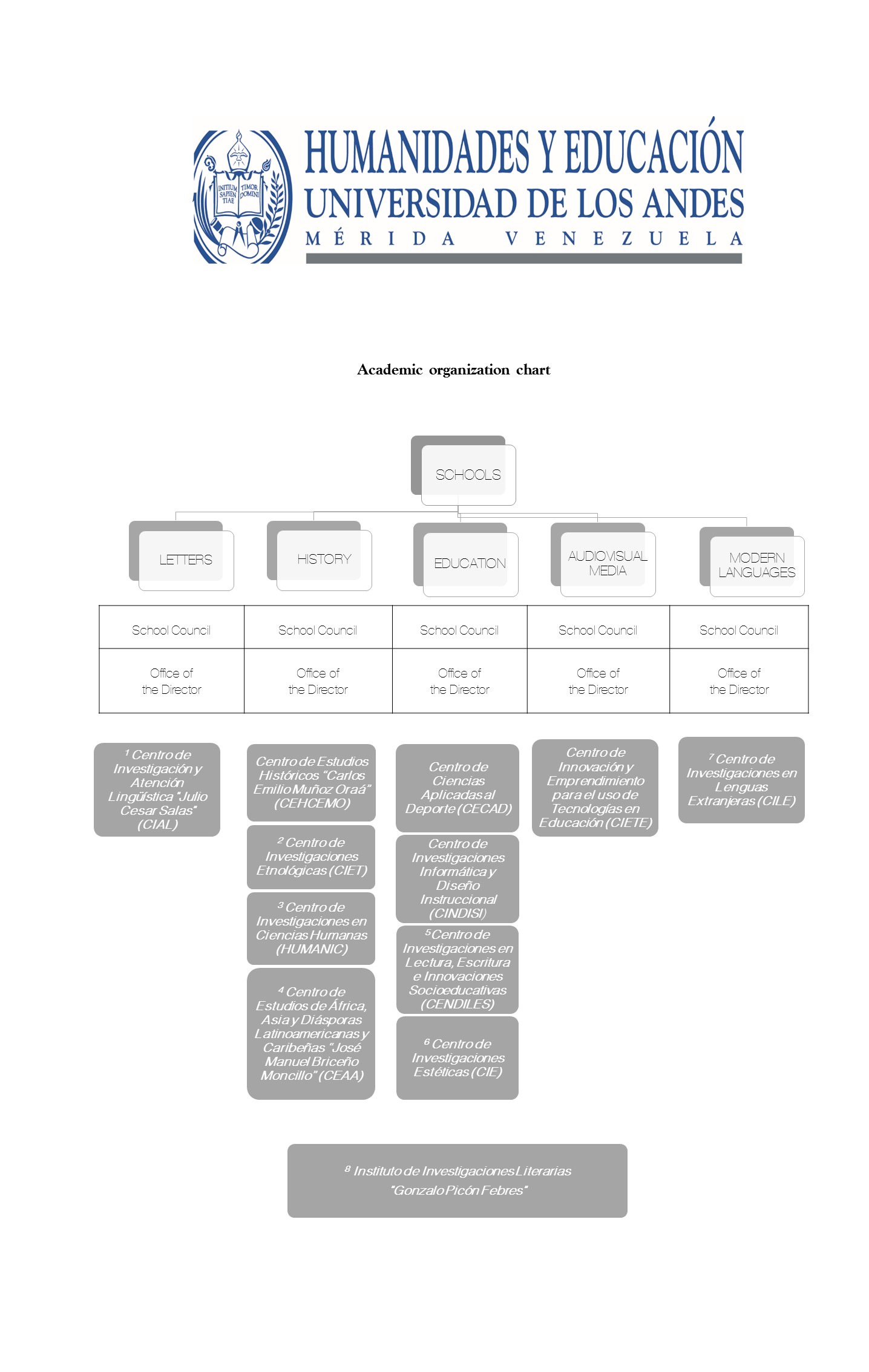Click on the image to see a larger version
1 The Centro de Investigación y Atención Lingüística “Julio Cesar Salas” (in Spanish, C.I.A.L) is a center committed to the research in Linguistics and its application to solve specific problems in the field of language. Some objectives of the center include the researching in the different areas of Linguistics, the diffusion of the research results, the organization of seminars, courses and linguistic update conferences among others.
2 The Centro de Investigaciones Etnológicas (in Spanish, C.I.E.T) was founded in 1995, when was approved by Council for Scientific, Humanistic, Technology, and Arts Development (in Spanish, Consejo de Desarrollo Científico, Humanístico, Tecnológico y de las Artes, CDCHTA). The center has five main research and teaching areas: Ethnology and Social Anthropology, Archeology, Geography, Regional History, Ethnolinguistics-Anthropolinguistics, and Bioanthropology.
3 The Centro de Investigaciones en Ciencias Humanas (in Spanish, HUMANIC.) is part of the School of History. The center consists of a diverse group of professional academic researchers committed to the knowledge of human sciences. The center’s researching areas include: city and urban life; civic culture and government; social practices and representations; science, and education and social reality.
4 The Centro de Estudios de África, Asia y Diásporas Latinoamericanas y Caribeñas "José Manuel Briceño Monzillo" (in Spanish, C.E.A.A) works in teaching, research, and extension programs concerning the political, cultural, philosophical, economic, historical, scientific, and technological areas of the Asian and African continents. It also serves as a link between the Ministry of Foreign Relations, the Venezuelan Cuerpo Diplomático Afroasiático and ULA to promote the study of Venezuelan politics and to help in the development of new scholarship opportunities for students and teachers.
5The Centro de Investigaciones en Lectura, Escritura e Innovaciones Socioeducativas (in Spanish, C.E.N.D.I.L.E.S) coordinates the activities of several groups of investigations such as the Grupo del Taller de Investigación Educativa (in Spanish, TIE), Grupo de Investigaciones e Innovaciones Socioeducativas (in Spanish, GISE), and the Grupo de Investigación Teoría y Didáctica de las Ciencias Sociales and the Grupo de Investigación en Didáctica de la Lectura y la Escritura (in Spanish, GINDILE). Some of the center’s main goals are to continue the research lines developed by the Graduate degree in Reading and Writing in 1986, to develop new study programs and research lines, and to train researchers in these specific fields of knowledge.
6 The Centro de Investigaciones Estéticas (in Spanish, C.I.E) was founded in 2001. Since then, it has been part of several international symposia and national conferences on aesthetics and contemporary art. The center is committed to the researching about contemporary art and aesthetics representations from the concept of art-artist, presented by Nietzche and Heidegger.
7The Centro de Investigaciones en Lenguas Extranjeras (in Spanish, C.I.L.E) is dedicated to the interdisciplinary scientific research in the area of foreign languages. The Center also develops its own graduate academic programs and supports undergraduate and graduate study programs from other departments.
8The Instituto de Investigaciones Literarias "Gonzalo Picón Febres" was founded on May 13, 1977. It was created to cooperate with the Faculty of Humanities and Education of the University of Los Andes in the expansion of the academic standard within its specific work area through research. Among the center’s objectives are the organization of seminars and special courses for different levels of education, the prompt and continuation of literary research, the creation and development of reference material and library services, and the collaboration with similar institutes.
More infomation about the Research at ULA's Faculty of Humanities and Education is available on Research

